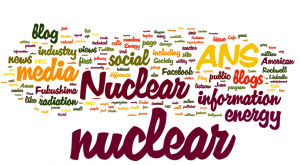A message from Schulz Electric
Schulz Electric™ Refurbishes Critical Circulating Water Pump Motor in Only Four Days

A message from Schulz Electric
Schulz Electric™ Refurbishes Critical Circulating Water Pump Motor in Only Four Days
During the past few days, I have been blessed with the opportunity to eavesdrop on an intriguing e-mail exchange involving Ted Rockwell, one of my technical heroes. Rockwell is a man whose involvement in nuclear technology dates back to the Manhattan Project, where he served as a member of a "Tiger Team" of young engineers who were assigned the task of making process improvements at Y-12.
Perhaps one of the more enduring cartoons that relates to the quality of information on the Internet is the one that states, "On the Internet no one knows you are a dog." It shows a drawing of two dogs sitting in front of a computer terminal. Unfortunately, the cartoon is copyrighted material so it can't be reposted here, but you can see it here along with many variations. The point of the cartoon is that words and images on the screen can come from anywhere and anyone. Clearing up misconceptions and outright falsehoods about nuclear energy since the March 11 Fukushima earthquake and tsunami is getting more attention these days. Problems range from not mainstream journalists not understanding the technical issues to people who are publicity crazed fear mongers out to get their face on a video.
Clearing up misconceptions and outright falsehoods about nuclear energy since the March 11 Fukushima earthquake and tsunami is getting more attention these days. Problems range from not mainstream journalists not understanding the technical issues to people who are publicity crazed fear mongers out to get their face on a video.
The use of food irradiation has expanded globally during the past decade and is gaining renewed momentum as a steadily increasing amount of irradiated food enters commercial channels in the United States and worldwide. Although irradiated fruits, vegetables, and poultry have been available commercially since the early 1990s, the introduction of irradiated ground beef by Huisken Meat Company in Minnesota during 2000 significantly increased awareness and interest in the technology.
In the weeks and months following the events at the Fukushima plant in Japan, the American Nuclear Society's Social Media listserv has become a headquarters for sharing information, ideas, and strategies about how to combat misinformation about nuclear energy. This active forum is facilitated by Dan Yurman, who through this effort has opened a new door for collaboration between communicators from all corners of the nuclear community. Many on this list have voiced concerns that the industry response to Fukushima has not yet managed to transition from defensive to offensive, in terms of public outreach.
Time again for another video from the Texas Atomic Film Festival. The video, Money Mobile Goes Nuclear, was the winner at the 2010 festival in the Best Editing category.
The third annual Texas Atomic Film Festival (TAFF) was held on May 5, 2011, by the Cockrell School of Engineering at the University of Texas at Austin. The 2011 TAFF featured seven films produced by students from UT-Austin as well as distance-learning students from Iowa State University, in Ames, Iowa. The goal of the TAFF is to allow students to communicate technical subjects to their peers by using digital movie content.
On April 12, one month after the initiation of the tragedy at the Fukushima Daiichi I nuclear power plant, the Japanese government labeled the event a level seven accident-the most severe rating on the International Nuclear Events Scale (INES). This announcement heightened international concerns about the severity of the event and the potential for circumstances to worsen. This posting is intended to provide some clarification about these events in historical context.
Improvements are needed in explaining the significance of the numbers to the public